Foxconn reconsiders Wisconsin plan to manufacture LCD screens
MOUNT PLEASANT — Electronics giant Foxconn reversed course and announced Wednesday that the huge Wisconsin plant that was supposed to bring a bounty of blue-collar factory jobs back to the Midwest — and was lured with billions in tax incentives — will instead be primarily a research and development center staffed by scientists and engineers.
The move was decried in some quarters as a case of bait-and-switch by the Taiwan-based company, which originally planned to build high-tech liquid crystal display screens in a project President Donald Trump had proudly pointed to as a sign of a resurgence in American manufacturing.
In a statement, Foxconn said it remains committed to Wisconsin and the creation of 13,000 jobs as promised. But because the global market environment that existed when the $10 billion project was announced in 2017 has shifted, "this has necessitated the adjustment of plans for all projects."
"This news is devastating for the taxpayers of Wisconsin," said Wisconsin Assembly Minority Leader Gordon Hintz, a Democrat. "We were promised manufacturing jobs. We were promised state-of-the-art LCD production. ... And now, it appears Foxconn is living up to their failed track record in the U.S. — leaving another state and community high and dry."
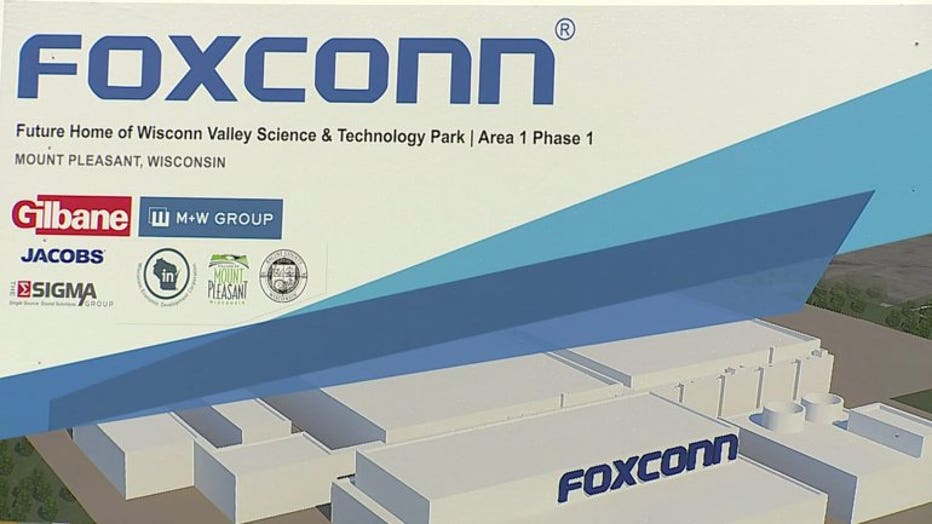
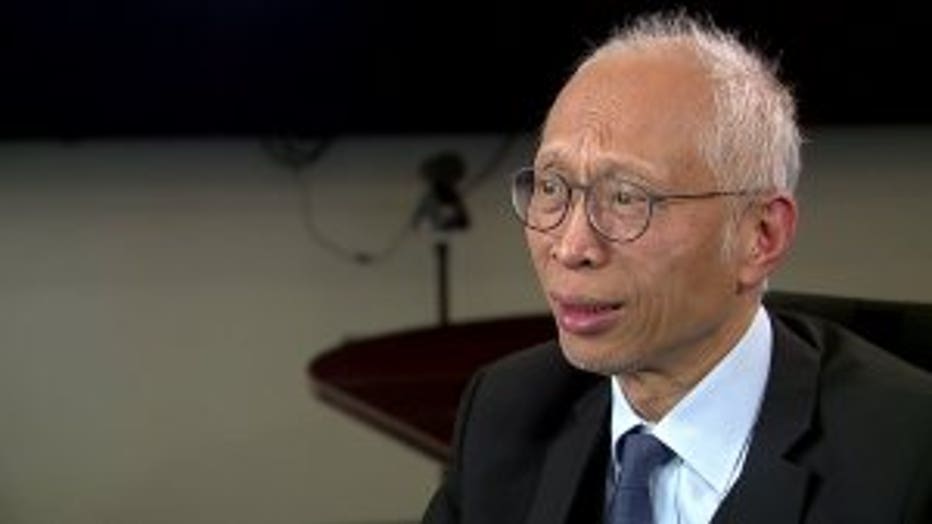
Louis Woo
Economic development officials and other supporters of the project urged patience, saying Foxconn still plans to invest what it promised. The White House had no immediate comment.
Foxconn, a major supplier to Apple, is the world's largest contract maker of electronics.
Louis Woo, special assistant to Foxconn's CEO, was quoted as telling Reuters that it is scaling back and possibly shelving plans to build display screens in Wisconsin because "we can't compete."
Woo said that instead of a factory, Foxconn wants to create a "technology hub," with about three-quarters of the jobs in research and development and design. Those jobs typically go to college graduates. The plant is under construction and scheduled to open in 2020.
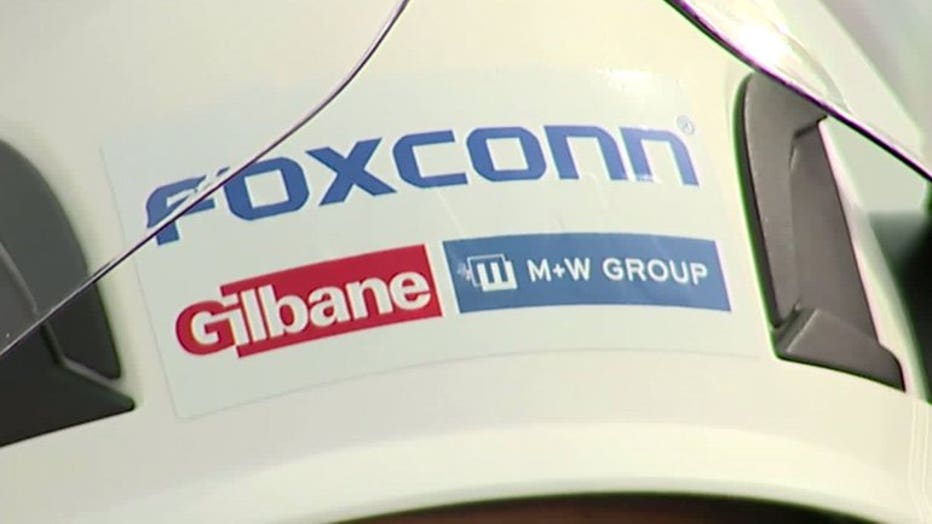
Marc Levine, senior fellow and founding director of the University of Wisconsin-Milwaukee's Center of Economic Development, called it "one enormous bait-and-switch." And he scoffed at the idea that Foxconn, known for manufacturing, could transform into a research and development giant.
"That's simply not what Foxconn is," Levine said in an email. "So the notion that there will be 13,000 research jobs at Foxconn is highly, highly unlikely."
The company initially billed the massive 20 million-square-foot (1.86 million-square-meter) Wisconsin complex as its first North American manufacturing site for the next generation of display panels to be used in a wide variety of products, including large-screen TVs, self-driving cars, notebooks and other monitors.
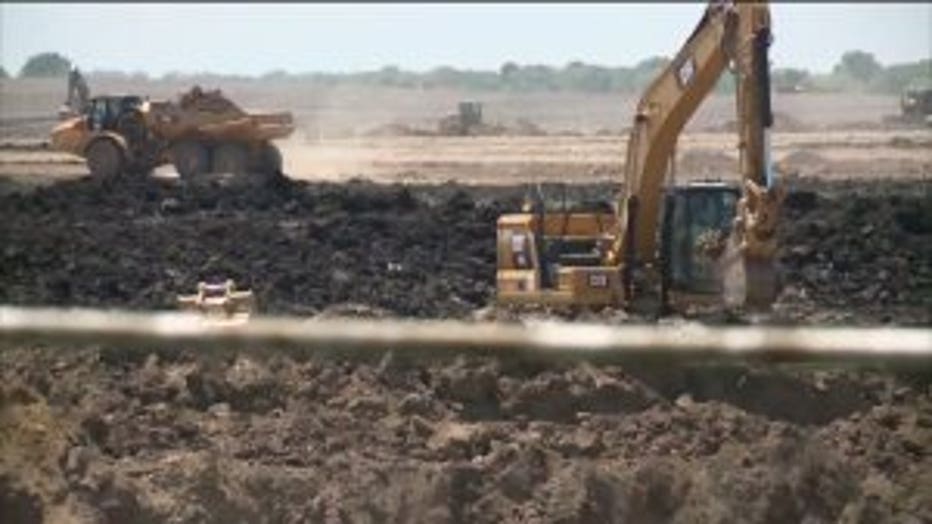
Wisconsin state and local governments promised roughly $4 billion to Foxconn, the richest incentive package in state history and the biggest pledged by a state to a foreign corporation in U.S. history. Foxconn was required to invest $10 billion and create 13,000 jobs to get the full incentives.
It had already fallen short last year, hiring 178 full-time employees rather than the 260 targeted, and failed to earn a state tax credit worth up to $9.5 million.
Former Gov. Scott Walker, the Republican who brokered the deal, emphasized in a tweet Wednesday that Foxconn earns tax credits only for actual investment and job creation. "No jobs/investment? No credits. Period," Walker tweeted.
Republican legislative leaders who pushed the project blamed new Democratic Gov. Tony Evers for Foxconn's change in plans. They said he had created an air of economic uncertainty by supporting elimination of a manufacturing tax credit program.
Evers was critical of Foxconn in the campaign against Walker but did not pledge to undo the deal. His top aide Joel Brennan said that the administration was surprised by the news from Foxconn. He did not address the accusations Evers was to blame.
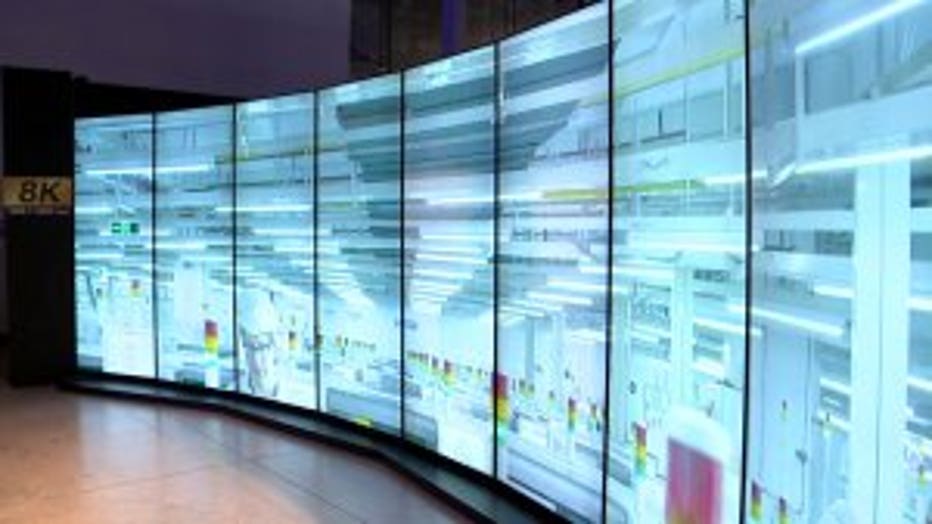
Foxconn open house
Democratic critics said the incentives promised to Foxconn were too rich, and they questioned whether the company would ever fulfill its promises.
The president of Wisconsin's Technology Council, Tom Still, said he is not surprised Foxconn wants to change course since televisions are becoming less expensive and iPhone sales are declining.
Still, whose group nurtures technology in Wisconsin, said Foxconn can succeed if the plant becomes more research-oriented because its areas of interest match up with Wisconsin's strengths, such as robotics, medical imaging and industrial imaging.
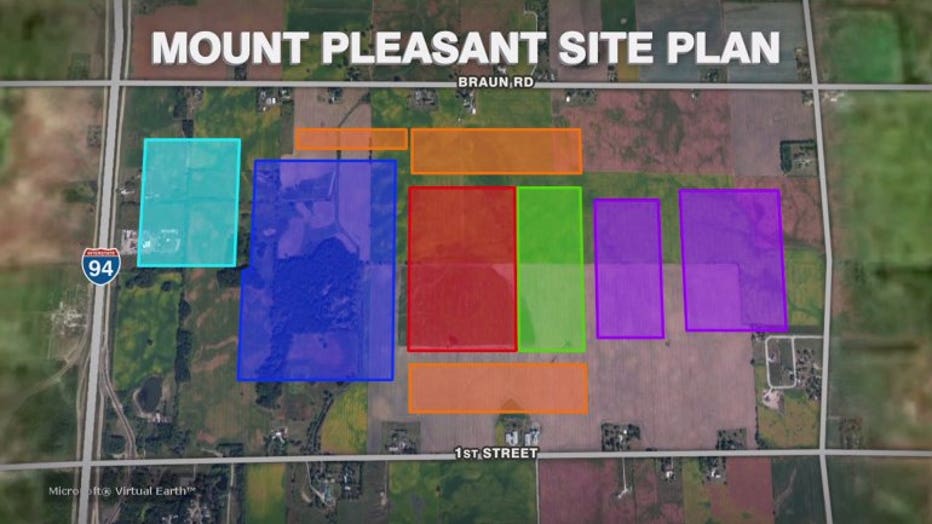
Mount Pleasant site plan for Foxconn
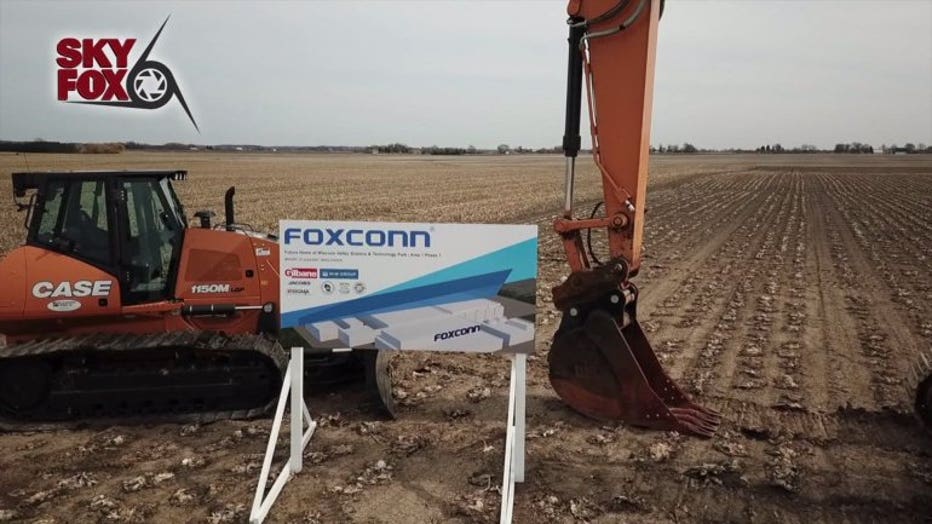
Foxconn development
Last summer, President Trump highlighted his economic policies at a groundbreaking event for the Foxconn complex.
"Made in the USA: It's all happening and it's happening very, very quickly," the president said in June after visiting the Foxconn site. "Today we're seeing the results of the pro-America agenda."
Assembly Speaker Robin Vos (R-Rochester) and Senate Majority Leader Scott Fitzgerald (R-Juneau) released the following statement on the Foxconn commitment to Wisconsin:
“In a short time, Foxconn has made a positive impact across Wisconsin with more than 1,000 new jobs, an investment of $200 million, three innovation centers and one of the largest gifts ever of $100 million to the UW-Madison. We don’t blame Foxconn for altering plans in an ever-changing technology business. It’s also not surprising Foxconn would rethink building a manufacturing plant in Wisconsin under the Evers Administration. The company is reacting to the wave of economic uncertainty that the new governor has brought with his administration. Governor Evers has an anti-jobs agenda and pledged to do away with a successful business incentive for manufacturing and agriculture.
“It’s disappointing to see Democrats rooting for the failure of Foxconn and trying to undermine this historic opportunity for our state. Democrats don’t want thousands of family-supporting careers; they want a political talking point.
“From the very beginning, we looked out for the best interest of the taxpayers of the state. Not a dollar would be paid out until jobs in the Foxconn development area were created. The incentive package is based on fulfilling the contract. We will continue to work with Foxconn to help the company meet its repeated goal of creating 13,000 jobs in Wisconsin. Again, the company has reiterated that this goal hasn't changed.
“Republicans will do all that we can to keep Wisconsin open for business and the Manufacturing and Agriculture Tax Credit in place. This news only strengthens our commitment to Wisconsin: we aren’t going to let our state move backward.”
State Sen. Jennifer Schilling (D-La Crosse) issued this statement:
"The Walker administration and legislative Republicans failed to put in place stronger safeguards to hold Foxconn accountable and protect Wisconsin taxpayers. Their negligence has put home-grown businesses at a competitive disadvantage while committing taxpayers to decades of economic costs and liabilities for a project that continues to shrink in size and scope. At some point, Republican politicians will need to wake up and realize that these massive taxpayer handouts to foreign corporations are busting our budget and preventing Wisconsin families and businesses from getting ahead. Democrats want to increase oversight and accountability to ensure that Wisconsin communities and workers are protected."
Wisconsin Department of Administration Secretary-designee Joel Brennan offered this statement:
“The administration is in regular, weekly communication with senior leadership at Foxconn, however, we were surprised to learn about this development.
“While some of the information reported today has been previously reported publicly, other details about the continuing evolution of this project will require further review and evaluation by our team. Our team has been in contact with Foxconn since learning this news and will continue to monitor the project to ensure the company delivers on its promises to the people of Wisconsin.
“The governor has always said that protecting Wisconsin taxpayers, the local communities that have already made significant investments in this project, and our environment are his chief concerns.
“In the coming weeks, the Evers Administration will continue to commit time, resources, and personnel to ensure that the interests of Wisconsin workers and taxpayers are protected and promoted by our approach to the Foxconn project.”

